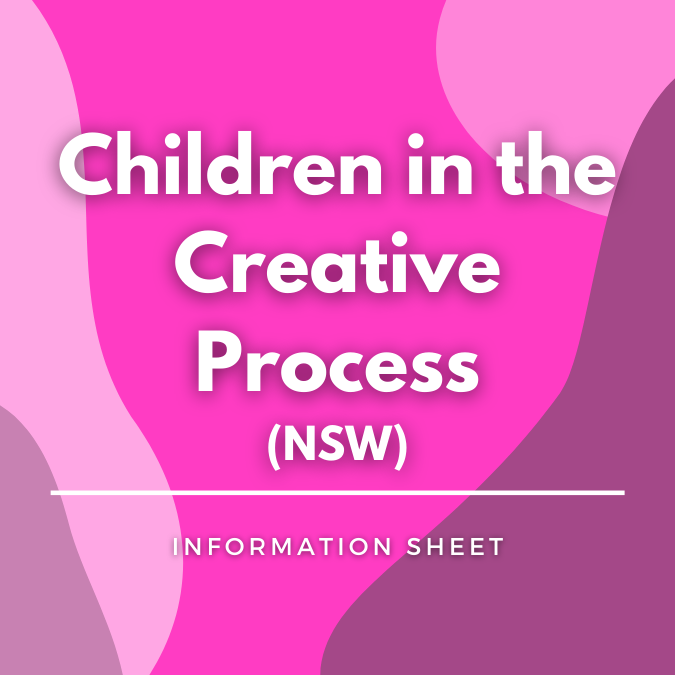Moral rights and Films: “Never get Busted!”

By Cat Cook, Pro Bono Solicitor Arts Law
McCallum v Projector Films Pty Ltd [2025] FCA 903
A cautionary tale to watch your tail when it comes to moral rights and film! On 6 August 2025, the Federal Court ordered Projector Films and creative producer/writer Mr Ngo (together, the Respondents) from screening and promoting the documentary film, “Never get Busted!” unless Mr McCallum, the Principal Director (the Applicant) was credited as such and not Ngo. The case is important as it considers the moral rights of film makers, known as “authors” for the purposes of the Copyright Act 1968 (Cth) (the Act) and its intersection with Australian Consumer Law.
McCallum argued actual or threatened infringement of his moral rights due to the Respondents failure to attribute him as the Principal Director of the documentary and falsely attributing Ngo as sole Director, in contravention of section 189 of the Act, which provides an author has moral rights.
Moral rights are the personal legal rights of creators regarding certain copyright material and exist separately to copyright. They exist to protect the creative reputation of artists, and differ to copyright as they cannot be given away. In Australia, the following rights are recognised as moral rights:
- The right to be attributed as the author of your work;
- The right not to have your work falsely attributed; and,
- The right to integrity (the right to prevent derogatory treatment of your work).
The Federal Court decision highlights the importance for authors to be alive to moral rights and proper attribution, in order to avoid unintended disputes with parties using their work.
It also highlights the importance that if you intend to use work that is subject to copyright, use express language when considering whether you consent to acts or omissions that may infringe moral rights. Consent should be clearly expressed, and language that implies a ‘waiver’ of moral rights, avoided. When drafting your contract, be clear and exact with the wording of the contract and how you wish to be credited.
Background:
“Never Get Busted!” is a documentary telling the true story of Barry Cooper, a former narcotics officer “gone rogue” after turning against the drug enforcement system. Cooper transformed into a decriminalisation activist, teaching people to challenge the war on drugs and how to evade law enforcement during the height of the ‘war on drugs’ in the 1990’s. Set in the context of the American drug culture wars, the documentary film was due to premiere in Melbourne in August of this year. In the lead up to the screening of the film at the Melbourne International Film Festival 2025 (MIFF) McCallum filed an interlocutory application to stop the Respondents from screening the film. He also asked the Court to prevent the Respondents from promoting the film unless it contained the credit “directed by Stephen McCallum” and not “Directed by David Ngo.”
Although both men had directed the film, McCallum argued he was the “Principal Director” of the documentary as consistent with the executed Director’s Agreement (the Agreement), and not Ngo, creative producer and screenwriter. He claimed the Respondents failed to recognise him as Principal Director in both the credits of the documentary and in the promotional material for the upcoming premiere.
A version of the film had already been screened at the Sundance Film Festival in Salt Lake City, Utah, in the United States without any reference to McCallum. The version to be screened at MIFF had been screened at the Dances with Films Festival in Los Angeles, where McCallum had been referred to as the “Director” and Ngo as “Principal Director”.
McCallum claimed his moral rights had been infringed as the maker of the film by the Respondents failure to attribute him as the Principal Director, and the false attribution of Ngo as Principal Director for the purposes of sections 189, 191 and 195WA of the Act. He also argued the Respondents had engaged in misleading and deceptive conduct, contravening section 18 of the Australian Consumer Law (the ACL) in promotional materials that suggested Ngo alone helmed the documentary. As a result, McCallum argued he suffered and would continue to suffer irreparable harm to his moral rights, reputation and career prospects.
Ngo argued that because he carried out substantive directorial work on the documentary, he was “Principal Director,” and not McCallum, who ceased performing essential work and was not involved in the critical phases during the works completion. The Respondents relied on McCallum’s signed waver as consent to infringements via clause 6.2 of the Agreement.
Takeaways:
- Moral rights and Part IX Copyright Act 1968 (Cth)
Only individuals have moral rights and for the purposes of a documentary, they belong to the maker of the film – that is the Principal Director. These rights cannot be assigned to a third party; however, a group of individuals may be able to claim moral rights as co-creators. Section 191 of the Act provides that in circumstances where there are two or more individuals involved in the production of a film, only the director is understood as the “Principal Director” and a subsidiary director is not.
- The Agreement
Although McCallum didn’t rely upon his contractual rights as the basis for the grant of contractual relief, he pointed the Court to the contract terms as a powerful indicator of the parties Agreement that he would be attributed as the Principal Director of the documentary pursuant to clause 9 of the Agreement.
The Respondent relied on clause 6.2 of the Agreement relating to the waiver of McCallum’s moral rights. Justice Shariff held those issues needed to be weighed against the terms of the Agreement and the parties intention that McCallum was the Principal Director of the documentary and perform work in that capacity. The Respondents reasoned McCallum had waived all moral rights when he signed the Agreement, which, effectively constituted consent to omit his name from the documentary.
What the Court said:
Justice Sherriff found McCallum established a case and that the balance of convenience favoured him. He found there was a present threat and prospect of the Respondents contravening the Act and that they engaged in misleading and deceptive conduct contrary to s 18 of the ACL by not attributing him as the Principal Director.
The Court granted McCallum the injunction based on the consequences of his infringed moral rights and held he would suffer prejudice unless relief was granted in the terms he sought. The injunction stopped the screening and promotion unless the credits read “directed by Stephen McCallum” and not “Directed by Ngo” or, promotional materials gave McCallum the principal director attribution.
Stayed tuned and don’t get busted!
The trial continues and is listed for hearing on 10 September 2025, but the interlocutory decision highlights the importance of the moral rights of film makers and its intersection with Australian Consumer Law.
To read the full case click here.
To read our updated Copyright information sheet click here.
If you have any questions regarding moral rights or would like to speak with one of our lawyers, please contact us.




